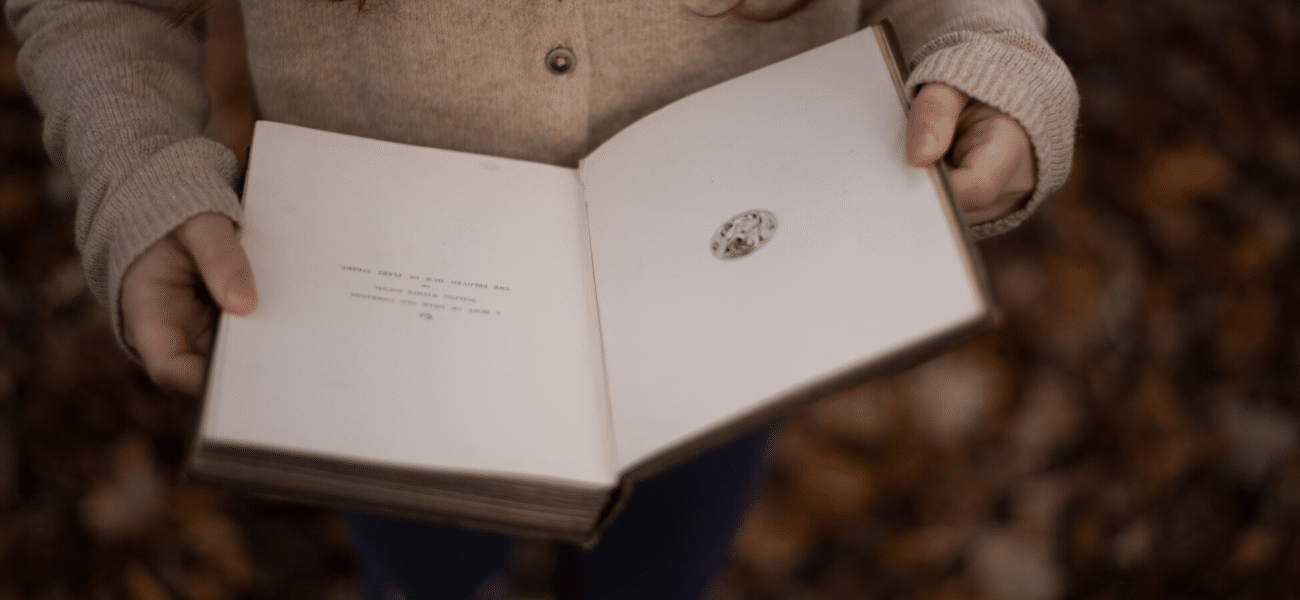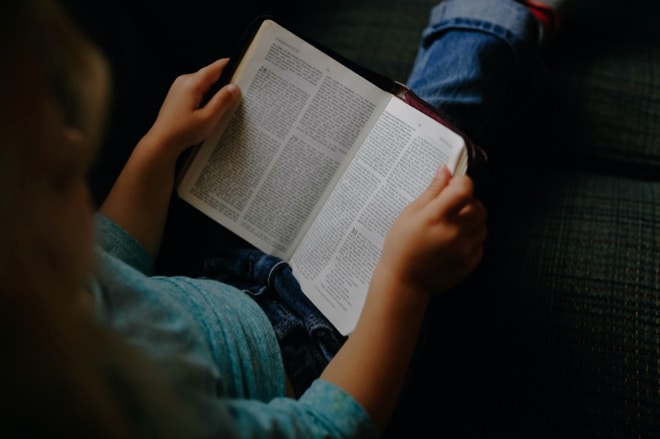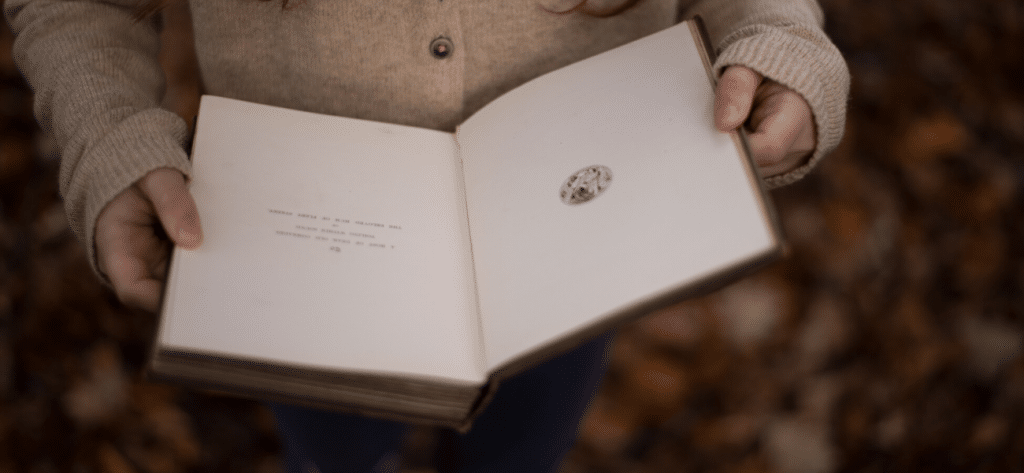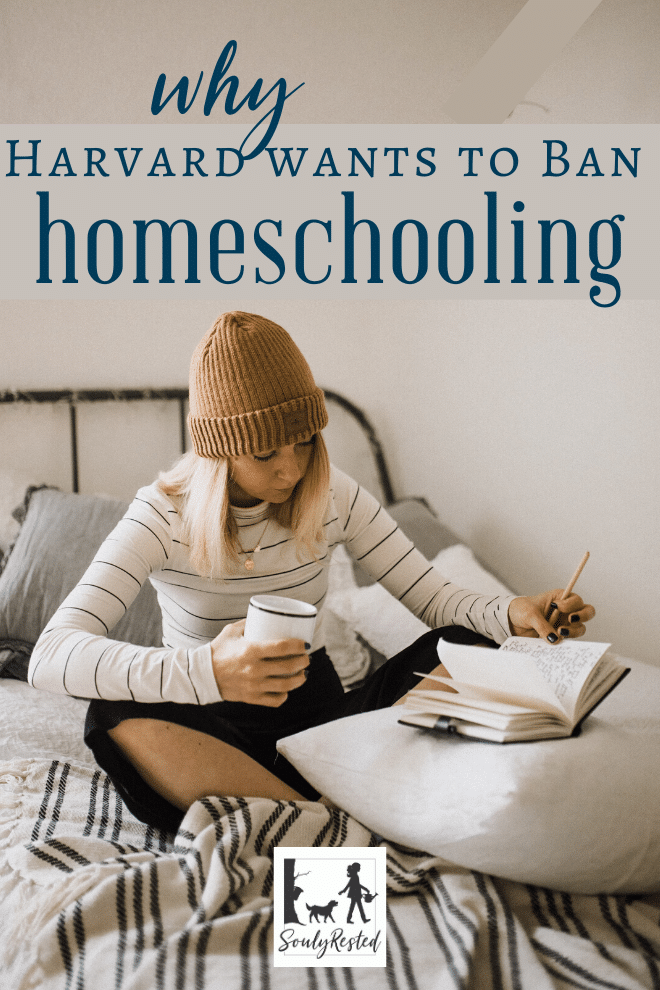Last Updated on June 20, 2024 by Michelle
The latest issue of Harvard Magazine has me feeling exceptionally grateful, after I finished fuming. Reading through the misconceptions and illogical arguments of Erin O’Donnell’s article, “The Risks of Homeschooling,” I was left with a new appreciation of the premises of homeschooling.

Y’all know I don’t have Harvard Law degree, and you can probably make a safe assumption that I have no experience in family law, but I do have the credentials to explain the workings of a homeschool mindset. And you can bet your bottom dollar, as my daddy would’ve said, that I can give you an earful about how an average homeschool mindset lies in complete antithesis to the Harvard article’s premises. You see, this May will mark the end of a 20-year career for me (albeit one without any monetary compensation), one that I devoted to the elementary, middle school, and high school education of all four of my daughters. At home.
So if you will pardon my escape this week from my typical topics, next week we’ll return to our regularly scheduled program of good food and simple living. Today I have a soap box to climb up on and a wonderful privilege of parents everywhere to defend.
Pardon me while I grab my super-hero-homeschool-mom cape (aka my tattered blanket I’m cuddled up with on this cold gray day) and we’ll jump in.
If you’re more of an audio-kind-of person, I also just recorded a podcast episode on this very same topic. See episode 8 of the Simple Doesn’t Mean Easy podcast on your favorite podcast player, or find it right here, or just listen in below:
Why did I choose to homeschool?
I longed to give my daughters an education that went well beyond just learning facts, but that often left them hungry for more. In my own 16 years worth of education, I can’t recall one moment that left me hungry for more. Sure there were a few interesting teachers and a few decent classes (although truly not enough of either in my academic career that spanned public and private learning), but I never dug in deeper than I had to to earn the “A” I was seeking.
Even so, instilling a love for learning in my own daughters (that I never had until I started teaching them) wasn’t all I was striving for.
I longed for my daughters’ education to accomplish even more. I longed for it to uncover their unique talents and interests and then cater to those very areas, which I knew would be different in each girl.
The prospect left me exhausted. For two decades. But utterly blessed.

I’m never going to sugar coat it.
If you asked me my opinion of homeschooling, anywhere along my journey or even today? I’d respond without hesitation, and without any sugar coating, that homeschooling has been the most difficult, roller-coaster-ride of rewards I’ve ever experienced.
It has left me with black circles and bald spots, from what seemed like seasons full of incessant crying and pulling-out of hair. (I guess I should clarify I’m talking about my own hair, not my daughters, since, after all, a big focus of the Harvard Magazine article is on homeschool child abuse.)
But it sure has led to some great things.
While it has never been easy, homeschooling has created a family unit stronger than we would have known if I had not chosen this path. As I watch my daughters, as adults, living and planning fulfilling lives, I realize how short and yet how deep and rewarding the last twenty years have been. Professor Bartholet argues that attending a brick and mortar school “for six or seven hours a day… does not unduly limit parents’ influence.” I’ll overlook the fact that attending traditional schools takes up much more time than 7 hours a day, 5 days a week, when you add in the long bus rides and morning rituals required (instead of leisurely enjoying a warm breakfast together in pjs while studying your first subject or two all before the traditional school bell rings).
When I think of all the experiences I’ve enjoyed elbow-to-elbow with my daughters over the years that Ms. Bartholet’s “six or seven hours a day” would have made impossible I am deeply thankful that I had the choice to not only teach learn beside my children but to help them build profitable businesses in middle school, watch them build 125-pound robots for competition, encourage them to develop culinary skills beyond my own, work with them to raise and train animals, and help them take a fun interest and turn it into a philanthropic endeavor that blessed thousands of children in hospitals and refugee camps around the world. Sorry Harvard, but those skills are more valuable to them today–and make them more valuable members of our democracy–than 2 hours a day on a school-bus commute and seven hours a day in a brick and mortar building with peers would have been.
And homeschooling has developed each daughter into a stronger, wiser, more productive, and more compassionate woman than she would have been otherwise, each in distinctly different ways, because of course every child is distinctly different.
Why does a Harvard professor want to ban homeschooling?
In the latest edition of Harvard Magazine, Elizabeth Bartholet, a Harvard professor, is quoted as saying that she “sees risks for children—and society—in homeschooling, and recommends a presumptive ban on the practice.”
Erin O’Donnell’s article, based on Professor Bartholet’s recent paper she published in the Arizona Law Review, ironically, shows complete intolerance for a minority group arguing that one of the biggest flaws of this minority group is that it promotes bigotry. (Homeschoolers, the article itself explains, account for roughly 3 percent to 4 percent of school-age children in the United States.)
In the interest of being transparent, I will note that I was feeling intolerant toward Professor Bartholet when I finished reading the article. But if I’m really going for transparency, I’ll admit I was intolerant of her views right out of the batter’s box. The minute I read her words that homeschooling violates children’s right to a “meaningful education” I was ready to call “foul.”
And I might have called her a few foul adjectives. Maybe.
Even so, I decided to spend a few minutes getting to know her better, so I could maybe gain insight into the motive behind this article. After opening a few new tabs on my laptop and reading about Professor Bartholet’s legal career and her focus on defending children who truly deserve to be defended from horrible neglect and abuse, and after reading how she was personally deeply moved by the awful story of “Tara Westover, the daughter of Idaho survivalists who never sent their children to school. [“Homeschooled”] Westover…endured abuse by an older brother.” I wondered if maybe, just maybe, Ms. Bartholet truly thought her suggested ban on homeschooling was indeed in the best interest of a small, select group of children whom she genuinely thought could be saved from abuse by stricter regulations on homeschooling.
I saw more irony.
But as I read a little more, I couldn’t help but see more irony. Bartholet knows first-hand about our broken governmental childcare system. She herself has written about how a surprisingly high percentage of children with substantiated claims of abuse and neglect are victims of repeat maltreatment. She is well aware that the broken system knows about abuse and yet returns kids to these homes anyway. So I was at a loss as to why she would feel the public school system could be a legitimate check and balance system to somehow prevent an abusive parent from destroying a child’s life.
Bartholet also is in favor of international and domestic adoption, even though she is of course well aware that “religious people” make up the vast majority of those who are adoptive parents. So I couldn’t figure out why she would be so in favor of conservative adoptive parents but so suspicious of conservative homeschooling parents.
And, side note, religious beliefs are no longer even close to the #1 reason folks take their kids out of traditional education and begin homeschooling, but Ms. Bartholet seemed to think it was. More on why parents are choosing to homeschool below.

I saw no logic.
When I saw no true logic in Ms. O’Donnell’s article, I started wondering if it was possible that the liberal education establishment—of which ivy league schools are the pinnacle—is concerned what attitude parents will have when they come out the other see of the corona virus shutdown?
Is it possible that elite, expensive collegiate establishments are worried that parents may see the joy in educating their children themselves and suddenly decide to make their children’s education their own personal priority?
Are expensive colleges worried that parents may suddenly be willing to rearrange their priorities and, instead of always striving for more material gains to improve their child’s life, long to cut out all extraneous things… such as new clothes (and go thrifting instead), a new car (we run ours into the ground), and dinners out (the kids love homemade pizza and movie at home even more—and it costs just a few dollars)… to cut out the need for one parent’s income?
Are a few people at Harvard wondering if parents, after realizing the oh-so-hard but surprising joy of learning alongside their children during the corona-virus shutdown, will now make sacrifices so one parent can stay home with their children and take their education into their own hands?
If so, then, after being educational, homeschool “rebels,” those same families may—years from now—realize that striving for their child to attain ivy league status after high school graduation is not an ideal that is important to them.
Could Harvard be concerned that after years worth of financial sacrifices for family gain, a high-price-tag college degree may no longer look so impressive to families across the country?
It left me fuming. With a pen.
Of course, I can only wonder. I can try to guess, but cannot understand the basic premise behind Ms. Bartholet’s paper or Ms. O’Donnell’s article. The blatantly vicious, prejudiced attack on an extreme minority in our nation left me fuming.
Then I stumbled across some insight into the thoughts of admissions officers at three institutions, where they stated that they privately believe that homeschoolers are, overall, close-minded religious bigots. And I decided I wasn’t going to sit silent over here in my chilly old farmhouse kitchen on this cold April morning. So here I am, jumping into this debate, armed only with my two decade’s of insight into hundreds of homeschool families in the Mid-Atlantic and New England areas. And with my pen.
The main “risks for children—and society—in homeschooling”… the main arguments in favor of a “ban on the practice,” according to the Harvard Magazine article? Homeschooled children are deprived of a meaningful education, not encouraged to be productive members of our democracy, and not protected from potential abuse.

What defines a meaningful education?
The Harvard professor argues that homeschooling deprives children of a “meaningful education.”
While the list of problems with this first argument is longer than I care to tackle here, I will point out a few.
First of all, Ms. Bartholet has seemed to have forgotten that roughly two-thirds of American students are scoring below grade level in both reading and math by the time they enter high school.
Also, I fail to understand how a one-on-one education, administered by a person who is truly invested in a child’s life, would not lead to, at a minimum, a somewhat meaningful education?
I assume Ms. Bartholet is picturing an abusive parent when she pictures homeschooling as meaningless effort, void of learning, but in reality the one that an average homeschooling mom truly “beats up on” is herself, always realizing there is some area of her child’s education that could be improved… always arguing (as her own worst critic) that at least one part of their child’s daily activities could be more meaningful. And often losing much sleep over trying to make it so. For every child in her care.
In the end, I would recommend that professionals such as the Harvard professor spend less time worrying about the children whose parents have taken on the responsibility for their educational well being, since, for the most part, those parents are doing enough worrying of their own, and instead, invest resources into improving the system, from the ground up, for those children whose parents simply don’t have any other option.
Who is adequate for the job?
The professor goes on to point out that there are homeschooling parents who are not adequate for the job of educating a well-rounded child.
This actually should not be surprising since, according to a study done in 2018, more than one in five adults, products of our public educational system, are functionally illiterate, while another 28 percent read at a “very basic” level. That equates to roughly half the adult population of the United States. So indeed there are some homeschool parents—who are products of the public educational system—who are not academically gifted themselves. But if we encouraged these parents to not homeschool their children then the argument is, “You’re not qualified, so send your child into the system that created you, unqualified to teach your own child, so they too may one day be unqualified to teach their own.”
Even so, I’m going to backtrack here and say I actually agree with Ms. Bartholet. In fact, I’ll go one step further and argue that NO homeschool parent is adequate for the job of educating a well-rounded child. But, ironically, this very fact leads to the next rebuttal of yet another erroneous point of the Harvard Magazine article.
How do we raise up the future generation?
The Harvard Magazine article argues that homeschoolers are not active, productive members of our democracy.
The assumption behind this argument is, of course, that a traditional educational system churns out students who are active, productive members of our democracy. But when a government has total control over what the youth are learning, and how they are learning it, isn’t it obvious that that can, potentially, lead to a totalitarian regime that recruits its supporters from youth and churns out cookie cutter citizens?
While, no, I am not adequate for the job of educating a well-rounded child, what naturally follows is indeed the makings of a wonderful democracy. You see, it’s too lofty and wonderful of a task to educate a child. It’s not a job that one person is able to do so single-handedly. In a dozen or so brief years, how can one instill great knowledge, as well as a passion for learning itself, and the abilities to do so freely, all life long, in a child?…. Not to mention the impossibility of the other tell-tale sign of a superior education–to help a pupil uncover his or her own passions and innate abilities and nurture them in ways totally unique to them…. no, there is no one up to the challenge, and everyone will fail at this roller-coaster, impossible ride known as educating a well-rounded child, Ms. Bartholet. You and I can agree on this.

But the story doesn’t end with a parent’s failures.
But the professor’s analysis would end there.
My personal experience confirms that the story—thank goodness!—does not end with my failures.
The story mushrooms and spills over, to draw in numerous mentors and experts into each child’s life, to fill those voids where I could never measure up. I sought out robotics teams, travel softball coaches, professional potters, experienced entrepreneurs, even website designers who wanted “in” for a brief season on this small window, through one child’s life, to leave a footprint and make a difference for everyone’s future.
Because we all know that is the way to change this country for the better. To raise up a future generation who is passionate about important things, and always eagerly learning and improving themselves and things around them. Since that is the ultimate goal of almost every homeschool parent I’ve ever worked with over the past two decades, I fail to see how on earth any standard, public education system could create more active, productive members who are contributing positively to our amazing democratic society. Yet Professor Bartholet argues that homeschoolers fail in these categories.
Sadly, on a different note, this interesting study points out that our public education system is failing our democracy in the area of civics studies. It turns out only 50% of Americans know how long the terms of representatives and senators are, not alone who has the power to declare war or what rights are guaranteed by the First Amendment of our Constitution.
Then there’s the argument about potential child abuse?
In the article, the argument is made that homeschooling “violates children’s right to … be protected from potential child abuse.”
After reading about Professor Bartholet’s legal background, I have to believe this argument against homeschooling was the one most concerning to her. I believe she has spent her adult life truly working to benefit children who are in need, and, if so, I respect that about her. Even so, I fail to see the logic behind her argument that banning homeschooling will in some way lessen child abuse.
Where is the real danger?
While I think the best way I can respond to this is with the study results I will explain below, my gut reaction the first time I read this argument was the fact that one of the leading reasons parents have decided to homeschool in recent years is they want to remove their child from danger they’ve been exposed to in the traditional education system: abuse in the form of bullying, as well as abuse at the hands of authority figures, rampant drug use, and violence.
In fact, a 2016 study by the National Center for Education Statistics shows that the #1 reason that parents choose homeschooling is their concerns about the dangers in the public education environment.
How many parents would homeschool? If only…
So my gut reaction when Ms. Bartholet argued that banning homeschooling will decrease child abuse was to wonder how many beautiful children have parents who would gratefully and willingly sacrifice of themselves and do whatever necessary to give their child a different option—bring them home and teach them themselves—if they knew that their child was being verbally, or maybe even physically, abused by an authority figure at their school to the point that their child can no longer find any joy in their classes.
If they knew that their child was being bullied by their peers to the point of considering suicide….
If they knew that their child was considering starting down a horrible path of drug abuse because they were exhausted at trying desperately to feel excepted by their peers and figure just dabbling in drugs a few times and hanging with the cool kids could help them finally feel that they fit in…
And if they knew that homeschooling is a viable, legitimate option and that, as explained here, the home-educated typically score 15 to 30 percentile points above public-school students on standardized academic achievement tests….
Instead, articles like Erin O’Donnell’s convince parents to turn a blind eye to odd actions they notice in their child because, let’s be real, they logic, it’s not like homeschooling will ever give their child a profitable life. They’ve read articles about the fact that homeschooling just turns a child into a self-centered person with no true exposure to a wide variety of people and beliefs who isn’t a valuable member of society. And they don’t want that for their child.
If only there were more straightforward, unbiased articles like this one in USA Today explaining how, on average, home-schooled students routinely participate in eight social activities outside of the home, consume considerably less television than do traditionally-educated students, have higher self-esteem, and are less susceptible to peer pressure.

A ban would lead to more victims.
But thankfully there have been thousands of families who DID realize the abuse their child was facing in school, families who chose to homeschool because it was safer for their child. Imagine how a ban on homeschooling would literally force thousands of children back into an environment their parents had pulled them out of because of the very fact that they were being victimized there.
Increased regulations do not decrease abuse.
Now that I’ve told you my gut reaction to this argument, I’ll share with you the results of a study that Erin O’Donnell should have glanced at before she wrote her article for Harvard Magazine. In a detailed study on this very topic—examining children ages 6 through 17 over an 18-year period— the researchers found no statistical evidence that there is any relationship between the number of abused homeschool students and the degree of state control over homeschooling.
So states that have had no regulations over homeschools for the past two decades did not experience any higher occurrence of abuse among homeschoolers.
This leads to the natural conclusion that instead of reducing abuse, a ban on homeschooling would increase abuse.
But what do other college professors think about homeschoolers?
I have a writer friend who, after graduating her own children from homeschooling, decided to find some college professors willing to answer a few simple questions about homeschoolers. My friend was curious to know how college professors viewed an average homeschooler.
While Michelle’s efforts were far from scientific (she went to facebook and did some searches) and she only questioned 7 random professors who actually replied to her request, via Messenger, the responses were eye-opening for anyone wondering what kind of adults are the products of this 40-year “experiment” known as modern homeschooling. Here’s Michelle’s full article, and here are a few of those professors’ insights:
“I have been so impressed by my homeschool students that I pulled my son from public school. He started homeschooling in 7th grade.”
“My homeschool students are some of my ‘favorite’ students…I find them to be ready to learn in a way that I don’t see with public school students.”
“Generally speaking, I can tell if a student is a homeschool graduate by the middle of the semester, because he or she is serious about class, interactive in class, and does very well, especially on those things not explicitly covered in class. I wish I could fill my classes with homeschool graduates.”
But maybe the most telling of all the questions Michelle asked was when she asked these 7 randomly-chosen college professors what they saw as the biggest weakness of homeschooled children in college.
One explained that her biggest complaint about homeschooled students was the fact they they were always forgetting to put their names on their work. (Honestly. I couldn’t make this up.)
Another one’s biggest gripe was that homeschoolers don’t know how to properly format a bibliography in MLA or APA style. (Not a skill I have found I needed once in my adult life, although maybe it would have come in handy with this article.)
But the best answer rang loud and true in my heart. In fact, just hours after I read this professor’s comment that I’ll share in a minute, I got a text from my eldest. She sent a photo of her new knitting project. I asked if if she was having trouble matching up her rows because it kinda looked like the knitting was a little crooked, and I knew this was her first-ever attempt at knitting a sweater, not alone one so intricately cabled.
“Oh, no, trust me mom, it’s perfect! It just wasn’t laid out perfectly straight on the couch when I took that picture.”
The perfection syndrome
The problem this professor explained that he saw so often in homeschoolers? “A perfection syndrome. Homeschool graduates are less likely to understand that there is an appropriate trade-off between efficiency and 100% accuracy. They tend to work on assignments too long in order to make them perfect.”
Yep. I can absolutely relate to what this professor had experienced as well.
Learning without a teacher?
So I can only speculate what the Harvard professor’s motives are when she calls for a ban on homeschooling and tell you, with all sincerity, that her logic is flawed when I compare it to my own two decades of experience with homeschooling children and parents from the Mid-Atlantic area through New England.
I can’t help but wonder if it could be that the biggest fault the traditional educational system finds in homeschooling is what the professor who described the perfection syndrome stated as his last comment on Michelle’s questionnaire:
“The greatest strength of homeschool graduates is their ability to learn without a teacher.”
More homeschool-related posts:
Help your child be an entrepreneur
Nine perfect things for a family to do together
Study nature with a child & create a family Backyard Book
How a homeschooler does a graduation party
Why I only have 2 goals for my daughters’ education
And here are some other links that might interest you:
Four questions successful parents ask themselves often
Twelve reasons to take your daughter to the fair
How my children succeed, even though I’m a failure
I have no greater joy than to hear that my children are walking in the truth. 3 John 1:4
Pin this for later!
Click on the image below to pin this post.
Find out why SoulyRested was considered to be one of the Top 20 Must-Read Homesteading Blogs of 2018 and then one of the Top Homesteading Blogs of 2019 as well.
I’d love to connect!
To find me in some other neck of the woods, just click any (or every!) icon below:
And please follow along!









Thank you for sharing these insights. I am a Black, Christian educator ( for over 35 years) who homeschooled my own 3 children. Two of them have Masters degrees and one was almost finished but had serious heart problems that almost cost him his life. He has suffered brain memory loss of it. I have a college degree, taught public school for over 19 years and I was not better qualified to teach my children due to a degree. It is the heart. I pledged to God to do my part to give them a good Christian education (ACE/School of Tomorrow) if He would bless me with children. He did His part, even after birth. And He still is blessing. Trust the Master to lead you even through the rough times, He provides knowledge, faith and the grace you need. Degrees don’t mean you have it all, know all or even understand it all. No God means nothing He is everything and He will care for His children. Oh, by the way, most of educational sexual abuse happens in public schools not churches. God bless and thanks for sharing your heart with me.
Thank you for sharing your experiences with me. It is truly a blessing to be able to foster our children via homeschooling.
My mother is a college professor of over 20 years at a Christian university. She just paid for my daughter’s homeschool curriculum for the year after I told her I’ve decided to keep my daughter home indefinitely. She says homeschoolers are her most adept and dedicated students and she is convinced that, “Homeschoolers will rule the world.” Anyway, thank you for this post. ❤️
Thank you for sharing your story, Chantal. I think your mom knows what she’s talking about.:) And I hope you thoroughly enjoy this year!! Know that it takes at least a year to work things out and feel like you have some sort of a routine and rhyme and reason and that’s totally okay. Also know that there is no need whatsoever to mimic a traditional school day. Enjoy the freedom and the time to truly get to know your child(ren) and encourage their passions! ♥️
Thank you for this information-I am passing it on to many friends. We, as many are “virtual” schooling and it is even more apparent than ever how poor the public education system is. As we muddle thru with virtual I am working on getting our finances and life in general to a place that will allow us to pull from public school completely-scared and nervous but see the imminent need to do so!
I have 2 college graduates-1 college freshman-1 still deciding🤪what to do and a 6th grader. With each child I realized more and more the extreme brainwashing to extreme liberal thinking in Colleges! We have struggled with each child with deep discussions at each visit with our kids to reign them in and remind them of Conservative values.
We are all now seeing the results of this extreme!
Conservative values have been gradually omitted from public schools as well with a recent dramatic increase on that!
It has become VERY apparent as the last few months unfold- the push for Mandatory vaccines to go to school- then the additional push to disallow homeschooling/push to force vaccines even on homeschool children-the list is endless on the efforts to remove Conservative opinions/values from this Country to gain total Liberal/Socialist government control!
Sorry to make this political- not my intent but the only way to speak to the issue at hand and how it relates to College professors as the one mentioned here.
I could speak on this for hours but class starts in 2 min.🤪
Thank you for sending out this article again in your emails. I did not see it in previous emails and read it for the first time today. I do not have children but am appalled when I hear friends (grandparents, parents, recently graduated young adults) discuss what is taught and, more importantly, not taught in all levels of school. I am appalled by the general lack of knowledge of basic math, civics, speaking skills and grammar, spelling, social skills (carrying on a conversation, making basic eye contact, kindness, empathy, etc.), time management, self-discipline, the difference between rights and privileges, etc.
As a former supervisor at work, I could often tell when someone was homeschooled. These “kids” had more poise and maturity, were not afraid to work hard to learn the needed skills, asked questions in a way that showed they wanted to learn and not in a whining or complaining manner, could carry on interactive conversations, knew how to listen, etc. I would hire a “homeschool kid” any day!
I LOVE this!! Thank you for taking time to share! As a homeschool mom of 2 decades, I love reading this. 🙂